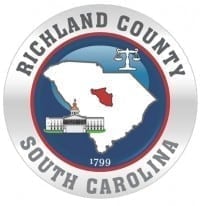Richland County providing $12.5M in emergency aid to renters
March 17, 2021Richland County renters seeking relief from past due and unpaid rent and utilities could qualify for a COVID-19 Emergency Rental Assistance Program (ERAP) that opens Monday, April 5.
With the $12.5 million grant from the U.S. Treasury, the County aims to help stabilize housing and provide peace of mind to vulnerable renters.
The program will provide up to 12 months of rental and utility assistance for eligible households, plus an additional three months if funds are available and the County determines the extra months are needed to ensure housing stability. Funding must be used to reduce the household’s rental and utility arrears before future rent and utility payments can be made. Once rental and utility arrears are reduced, future rent and utility payments for up to three months at a time can be considered.
ERAP will not provide assistance that duplicates any other federally funded rental and utility assistance provided for the same time period.
To be eligible, a household must be renting or have rented during the COVID-19 pandemic and include at least one individual who fits each of the following criteria:
- Qualifies for unemployment or has seen a reduction in household income, incurred significant costs or experienced financial hardship because of COVID-19
- Demonstrates a risk of experiencing homelessness or housing instability
- Has an annual household income at or below 80 percent of Richland County’s area median income (AMI).
Households with incomes at or below 50 percent of AMI will be prioritized. Priority will also be given to eligible households that include at least one person who has been unemployed for 90 days before they apply for assistance. Information on AMI and household income limits for Richland County is available online.
Beginning April 5, applications will be accepted from eligible renters or from owners/landlords and/or utility providers on behalf of renters. Funds generally will be paid directly to landlords and/or utility providers unless the landlord/utility provider does not want to participate.
To ensure they can quickly provide all required information at the time of their program application, applicants should be prepared to provide the following information:
- Name and contact information.
- Address – Household applicants must reside in a rental property within Richland County.
- Status – renter or landlord?
- Copy of an applicable lease agreement or self-attestation in the absence of a lease agreement.
- Household Income – must be below 80 percent AMI.
- Rental/utility payment status
- In arrears or prospective?
- Impact of COVID-19
- Is there economic hardship? How?
- Is there a risk of homelessness or housing instability? How?
To help with the application process, residents will be provided a toll-free number and a link to information for the program online before April 5, the program’s launch date.
2020 Maximum Total Household Income Limits
(Effective April 1, 2020, for Richland County)
| Family Size | Very Low Income | Low Income |
| 50% or below of Area Median Income ($) | 51%-80% of Area Median Income ($) | |
| 1 | 24,450 | 40,700 |
| 2 | 29,050 | 46,500 |
| 3 | 32,700 | 52,300 |
| 4 | 36,300 | 58,100 |
| 5 | 39,250 | 62,750 |
| 6 | 42,150 | 67,400 |
| 7 | 45,050 | 72,050 |
| 8 | 47,950 | 76,700 |
Source: https://www.huduser.gov/portal/datasets/il/il2020/2020summary.odn














